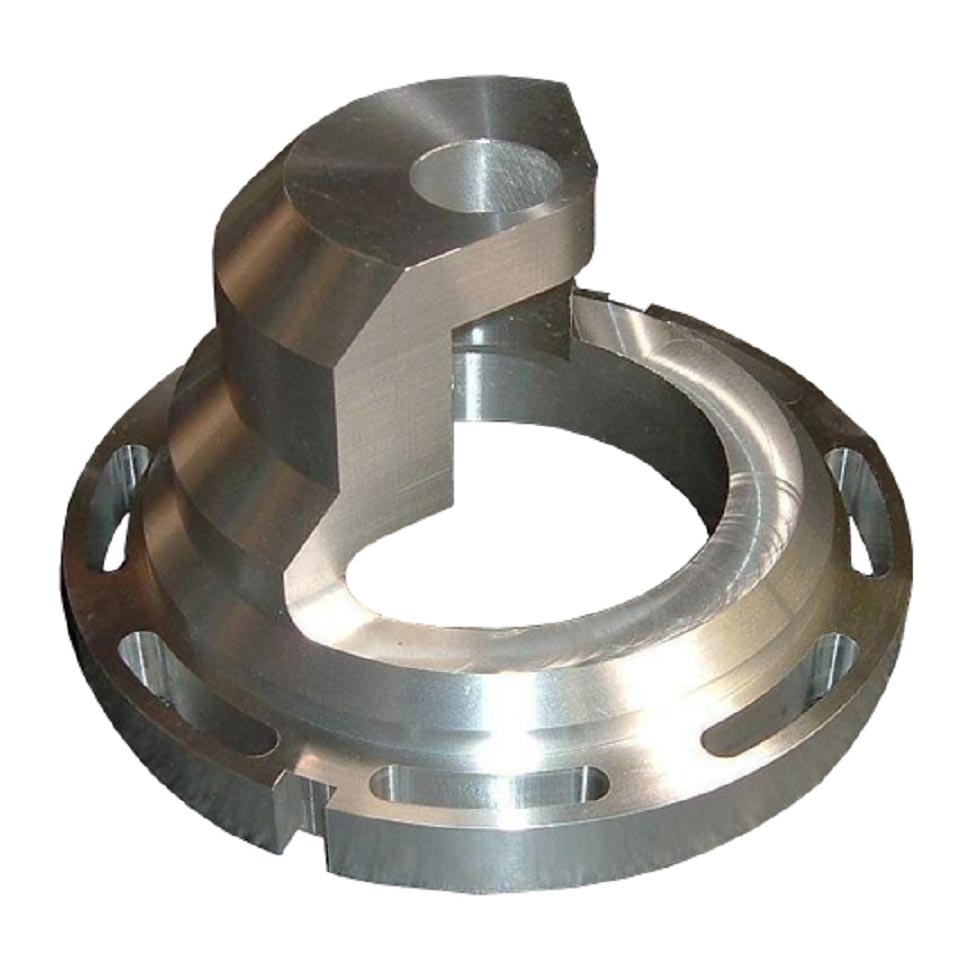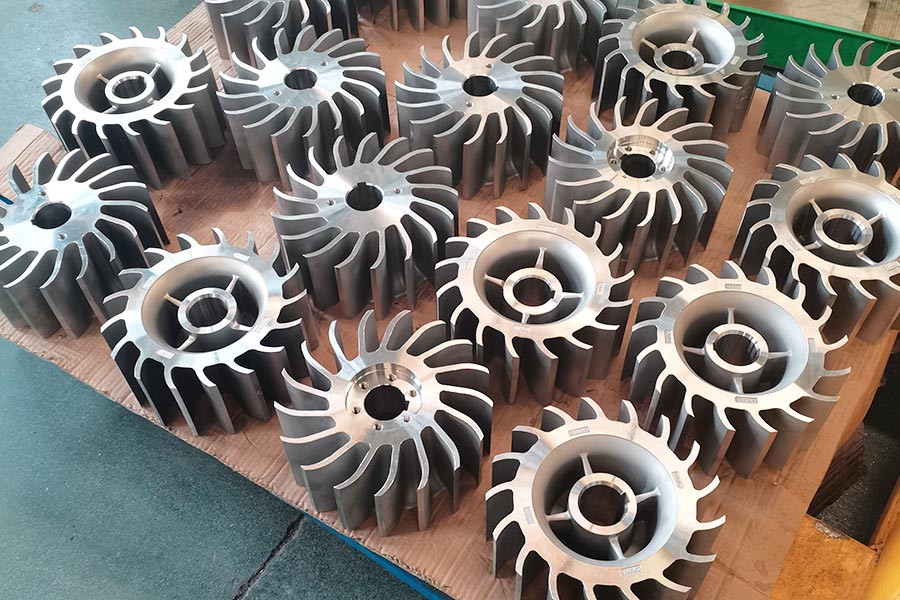
Carbon & Alloy Steel CNC Machined Part
Material: Carbon Steel, Alloy Steel Process: Precision CNC Machining Weight: 1.50 kg Application: Customized
At RMC, we offer machining, grinding, turning, drilling, threading and other secondary processing services utilizing CNC equipment and machining center to ensure that our precision machined castings match the tight tolerances.
Machining requires attention to many details for a workpiece to meet the specifications set out in the engineering drawings or blueprints. Beside the obvious problems related to correct dimensions, there is the problem of achieving the correct finish or surface smoothness on the workpiece. The inferior finish found on the machined surface of a workpiece may be caused by incorrect clamping, a dull tool, or inappropriate presentation of a tool. Frequently, this poor surface finish, known as chatter, is evident by an undulating or irregular finish, and the appearance of waves on the machined surfaces of the workpiece.
At RMC, we offer machining, grinding, turning, drilling, threading and other secondary processing services utilizing CNC equipment and machining center to ensure that our precision machined castings match the tight tolerances.
Milling is to fix the blank (produced by casting, forging or other metal forming process), and use a high-speed rotating milling cutter to move on the blank to cut out the required shapes and features. Traditional milling is mostly used to mill simple shape features such as contours and grooves. The CNC milling machine can process complex shapes and features. The milling and boring machining center can perform three-axis or multi-axis milling and boring processing, which is used for processing, molds, inspection tools, molds, thin-walled complex curved surfaces, artificial prostheses, blades, etc.
Our Fully equipped machine workshops are organized to develop parts of exceptional dimensional accuracy. Our precision machining workshop are equipped with Machining Centers, CNC Machines, and Special Machined for some appointed process. Our dedication to the precision machining process is extensive. We pride ourselves on our products and services, reasonable costs, and timely delivery. The quality certifications are implementing strictly according to ISO 9001.
Precision machining can be used on many materials including gray iron, ductile iron, carbon steel, steel alloys, stainless steel, aluminum, copper, bronze, and some special alloys.
Lathing mainly uses a turning tool to turn a rotating workpiece. Lathes are mainly used for machining shafts, discs, sleeves and other rotating or non-rotating workpieces with rotating surfaces, such as inner and outer cylindrical surfaces, inner and outer conical surfaces, end faces, grooves, threads, and rotary forming surfaces. The tools used are mainly turning knife. During turning, the cutting energy of turning is mainly provided by the workpiece rather than the tool.
Turning is the most basic and common cutting method, and it occupies a very important position in production. Turning is the most widely used type of machine tool processing in mechanical manufacturing. Among all kinds of metal cutting machine tools, lathes accounts for about 50% of the total number of machine tools. The lathe can not only use turning tools to turn the workpiece, but also use drills, reamers, taps and knurling tools for drilling, reaming, tapping and knurling operations. According to different process characteristics, layout forms and structural characteristics, lathes can be divided into horizontal lathes, floor lathes, vertical lathes, turret lathes and profiling lathes, among which most are horizontal lathes.
CNC Precision Machining Capabilities
Facilities
Quantity
Size
Range (mm)
Annual
Capacity
Vertical Machining Center (VMC)
48
sets
1,500
× 1,000 × 800
6,000
tonn or 300,000 pieces
Horizontal Machining Center (VMC)
12
sets
1,200
× 800 × 600
2,000
tons or 100,000 pieces
CNC Machine
60
sets
Max
turning φ600
5,000
tons or 600,000 pieces
Standard of Tolerance: ISO 8062 2013, ISO 2768,
GOST 26645 (Russia) or GBT 6414 (China).
▶ Available Ferrous Metal Materials
• Cast Iron including gray iron and ductile iron
• Carbon Steel from low carbon steel, medium carbon steel and high carbon steel.
• Steel Alloys from standard grades to special grades on request.
▶ Available Non-Ferrous Metal Materials
• Aluminum and their alloys
• Brass and Copper
• Zinc and their alloys
• Stainless Steel
▶ General Commerial Terms
• Main workflow: Inquiry & Quotation → Confirming Details / Cost Reduction Proposals → Tooling Development → Trial Casting → Samples Approval → Trial Order → Mass Production → Continuous Order Proceeding
• Leadtime: Estimatedly 15-25 days for tooling development and estimatedly 20 days for mass production.
• Payment Terms: To be negotiated.
• Payment methods: T/T, L/C, West Union, Paypal.

 русский
русский



